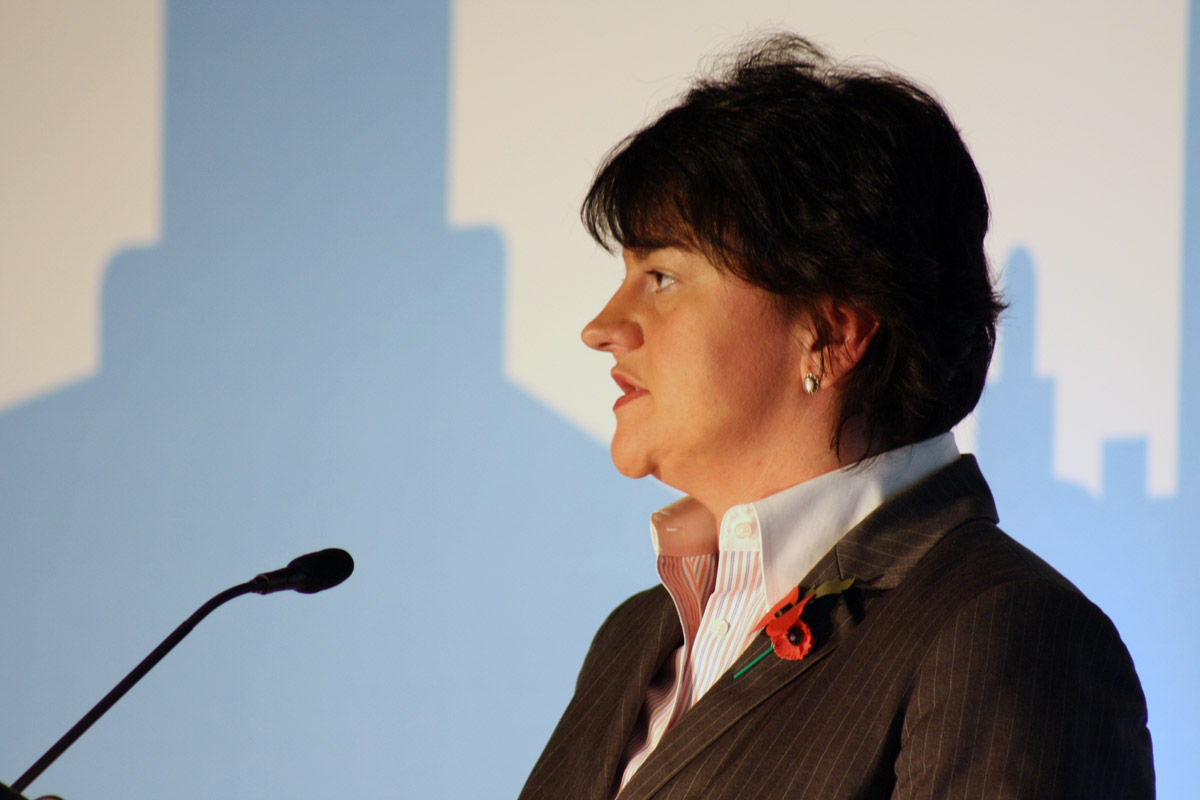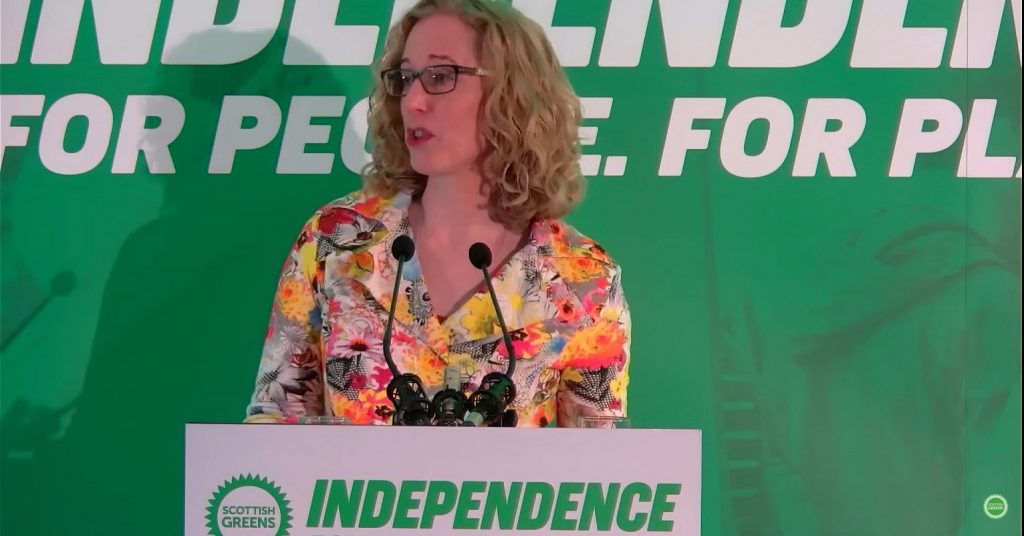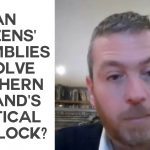Brexit and the Tory deal have only deepened Northern Ireland’s political crisis
The Irish Sea, this summer, feels a few miles wider.
For me, it began at the count. My fellow Green candidate and I scarcely paid any attention to our own meagre vote stacks as our teams shared snippets of news coming from across the UK. Some of the rumours were exaggerated – I still don’t know where the one about Patrick Harvie’s victory came from – but there was no doubt that something extraordinary was happening. A progressive alliance in government was looking like a real possibility.
But upstairs in the canteen, a very different picture was unfolding on BBC Northern Ireland, and a stark map being coloured. Apart from North Down, where a popular independent managed to hang onto her seat, there were only two crayons to be used. Every border constituency, all those west of the river Bann, together with famously republican West Belfast, went to Sinn Fein and so to MPs who will not take their seats in Westminster. Every other constituency, across the north and east, including cosmopolitan South Belfast, was taken by the DUP.
Ah, the DUP. Once so little known in England that it was reputedly a pointless answer on the game show, Arlene Foster’s party became instant clickbait as soon as Theresa May announced her intention of wooing it. And, like a wise maiden, it took its time and knew its price. One and a half billion pounds. We ought to be dancing in the streets.
But we’re not. We’re seeing vital services like Sure Start and Women’s Aid having their funding cut or unconfirmed and the poorest children facing the loss of their small school uniform grant. Schools with budgets already pared to the bone were told last year that they would have to start paying their teachers’ pension and national insurance contributions, previously met by the Department of Education. We had hoped that the Assembly at Stormont would ease the pain. But we have no Assembly.
Since the last Stormont elections in March (just ten months after the previous one), Sinn Fein and the DUP have been in on-off talks about forming a power-sharing Executive. The outcome has been precisely nothing, and James Brokenshire has sent them out to play for the summer, with headmasterly admonitions about doing better in the autumn. Meanwhile health, housing, education, environmental protection and all the work necessitated by the Troubles’ legacy and by a looming Brexit are in various stages of stasis, crisis and oblivion.
One of the most shocking things for me is that there is so little information, or even curiosity, about what they have been doing all this time. The talks have been entirely secret and the only press statements have been the brief appearance of clusters of doughnutted MLAs flinging broad-brush blame at their counterparts. No joint, or even unilateral, statements of agreed and disputed issues, no agendas, no minutes, no timelines, no press conferences- nothing but vague and self-righteous accusation. And the only spirited response of the public is to call for all MLAs to lose their salaries, including those from the smaller parties who can have no influence on the talks.
In this situation, the £1.5bn looks less and less like a blessing. If it comes at all, I fear that it will come primarily to benefit the corporate world, to encourage unnecessary and damaging road schemes, to reorganise the health service rather than to fund it, to push integrated education further into the shadows and to reopen old wounds of resentment and distrust. And with only one non-DUP MP sitting in the House of Commons, no one at Stormont and our press fettered by unreformed libel laws, who will hold those spending it to account? The money has lost us any sympathy we might have had from the rest of the UK, especially from Scotland and Wales. And the UK-wide stipulations that accompany it, that the pension triple-lock and universal winter fuel payments be retained, while DUP MPs voted to keep the public service pay cap, will not endear it or us to those calling for intergenerational justice.
A national awareness of the cruelty of Northern Ireland’s abortion laws led to the welcome cross-party Queen’s Speech amendment, and the government’s consequent capitulation on NHS charges. The DUP’s misuse of the petition of concern is rightly criticised, including by some Tories. In general, though, as I found in the Left Field tent at Glastonbury this year, Northern Irish politics is as alien as ever, just currently more of a nuisance. But it isn’t the attitudes of the rest of the UK that are concerning me most, but the currents in the air at home.
Here in mainly rural Fermanagh, community relations have generally been very good, even during the hardest times, and deep friendships endure across the traditional divides. But the knife-edge demographics of the constituency mean that people feel constrained to vote much more angrily than they live. Every time there is an election – and there have been four in the past two years, with more possible in the autumn – a little more grit falls into the relationships, a little more grimness into the conversations. As the marriage between Sinn Fein and the DUP collapses into dysfunction – perhaps it was only the character of Martin McGuinness which kept it going at all – so the bitterness lands, like distant fallout, onto our towns and villages. As the only representative layer of politics left to us (apart from our MEPs, for a few short months) we are already seeing our newly reorganised local councils being used as proxy arenas for Stormont feuds. We cannot afford this, especially now, with growing inequality, a serious environmental deficit and less certainty than ever as to what Brexit will mean for our border county.
There is hope. Our peace is cherished, especially by those who remember what came before it, and there is a real respect for the Good Friday/Belfast Agreement and a determination by many to make devolution work. There is a huge reservoir of goodwill towards different voices, those of both main traditions and those of neither. And there is an understanding, born of long experience that, if we’re going to build a fairer future, we have to do it together. We can still do it, but it’s going to be harder now.





Leave a Reply